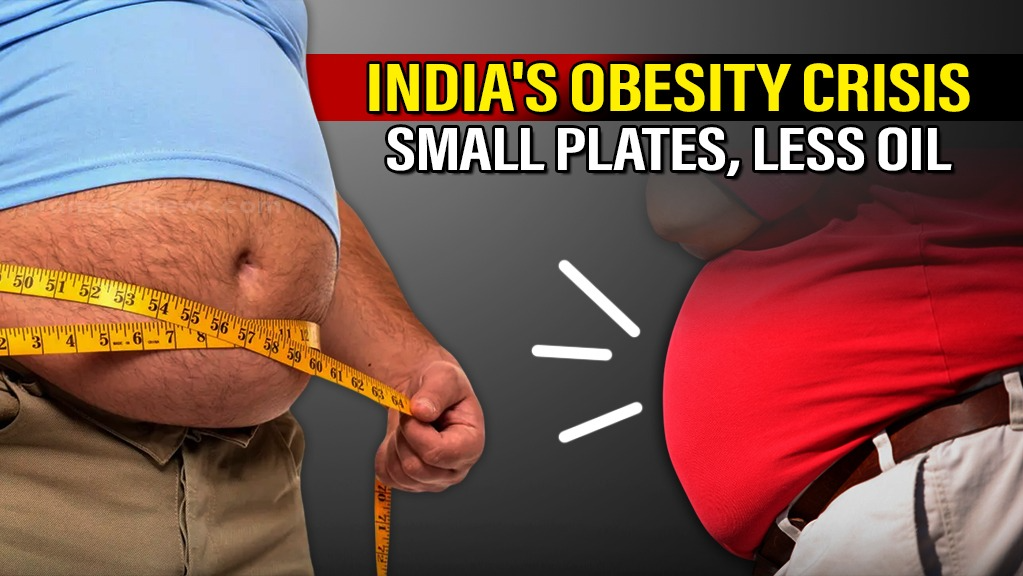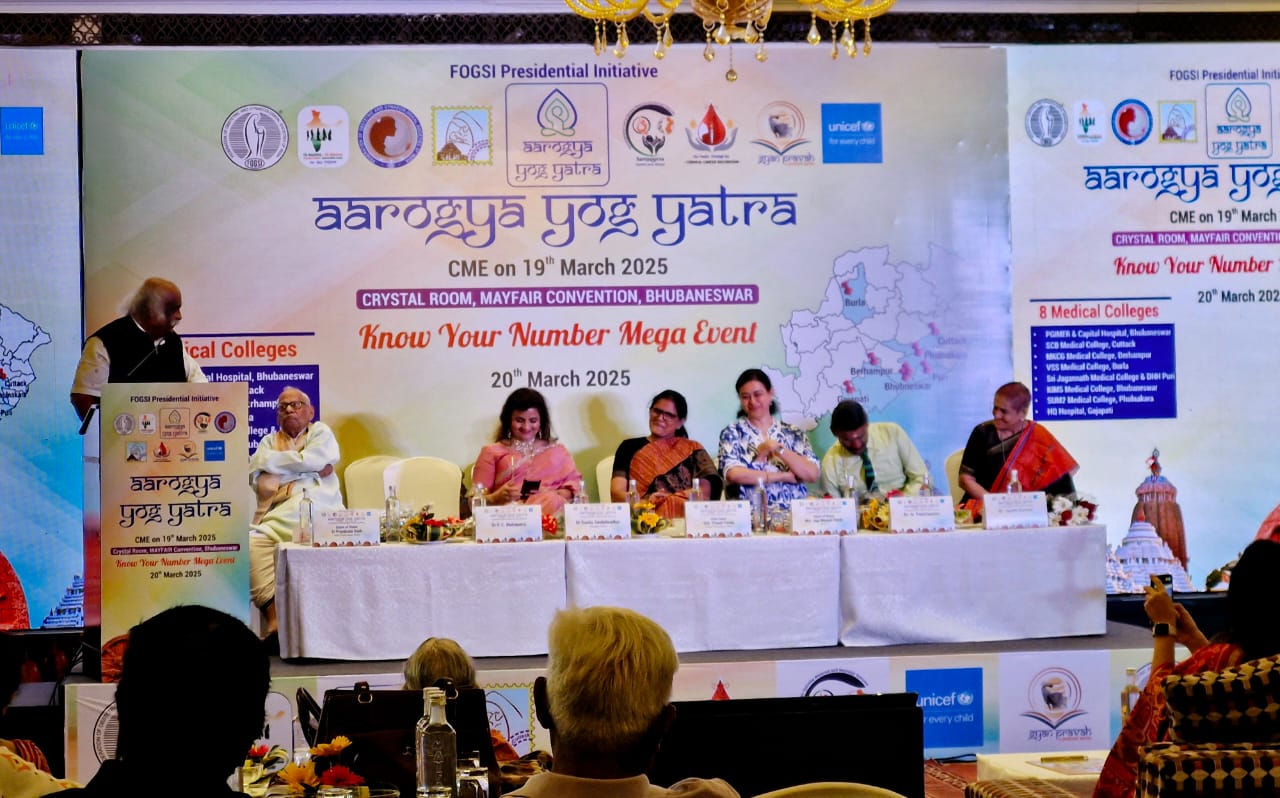Tackling a Growing Concern: India's Multi-Faceted Battle Against Obesity
Obesity is no longer a distant concern but a pressing public health reality affecting millions across India. As awareness grows around various diseases, mental health, and the importance of preventive care, the nation is grappling with escalating rates of overweight and obese individuals. Recent data paints a concerning picture, prompting calls for urgent action from health organizations, business leaders, and policymakers alike. Understanding the scale of this challenge, its root causes, associated health risks, and potential solutions – ranging from individual lifestyle changes to innovative dining options and medical advancements – is crucial for forging a healthier future.
Obesity by the Numbers
India now finds itself among the top three most obese countries globally, trailing only China and the United States. According to the National Family Health Survey (NFHS-5) conducted between 2019 and 2021, over 135 million Indians are classified as obese. The prevalence is slightly higher among women (24%) compared to men (22.9%). Perhaps more alarming is the significant rise in childhood obesity, which increased from 2.1% in 2015-16 to 3.4% in 2019-21, with urban areas showing higher rates. Global projections published in The Lancet estimate that by 2050, over half of the world's adults could be overweight or obese, potentially affecting around 440 million people in India alone if trends continue.
Understanding these numbers requires clarity on definitions. Obesity is commonly measured using the Body Mass Index (BMI), calculated as weight (kg) divided by height squared (m²). While the WHO defines overweight as a BMI of 25-29.9 and obesity as 30 or higher, Indian guidelines adopt lower thresholds due to a recognized genetic predisposition towards metabolic diseases in the population. In India, a BMI of 23-24.9 is considered overweight, and a BMI of 25 or above signifies obesity.
Why is Obesity Rising in India?
Experts point to a confluence of factors driving this health crisis. Dr. KiranSoni, Head of Nutrition & Health at Yatharth Hospital, Greater Noida, highlights several key contributors:
- Sedentary Lifestyles: Increased urbanization, modern office culture involving long sitting hours, lengthy commutes, and the rise of screen-based entertainment have drastically reduced daily physical activity for many.
- Shifting Dietary Habits: There's been a noticeable move away from traditional, home-cooked meals towards readily available, calorie-dense options like fast food, processed items laden with refined sugars, and unhealthy fats.
- Stress and Sleep Deprivation: Modern life often brings high stress levels and inadequate sleep, leading to hormonal imbalances (like increased cortisol) that can contribute to weight gain.
- Genetic and Medical Factors: Some individuals may have a genetic tendency to store fat more easily. Medical conditions like hypothyroidism or insulin resistance can also play a role.
- Socioeconomic & Environmental Influences: Rising incomes can increase access to high-calorie foods. Urban environments may lack safe, accessible spaces for walking or recreation, further discouraging physical activity.
Obesity's Health Risks
It's crucial to understand that obesity is far more than a cosmetic issue. Dr. Sanjay Verma, Director of Minimal Access, GI, and Bariatric Surgery at Fortis Escorts, New Delhi, warns it significantly elevates the risk of numerous life-threatening conditions. These include:
- Metabolic Diseases: Greatly increased risk of Type 2 Diabetes, hypertension (high blood pressure), and heart disease.
- Liver Problems: Excessive fat accumulation can lead to fatty liver disease, potentially progressing to cirrhosis.
- Joint Issues: Extra weight puts added pressure on joints, increasing the likelihood of developing arthritis.
- Mental Health Challenges: Obesity is often linked to depression and anxiety, fueled by societal stigma and potential impacts on self-esteem.
Finding Solutions
Addressing India's obesity challenge requires a comprehensive strategy involving individuals, communities, businesses, and policymakers. Experts emphasize lifestyle modifications as a cornerstone.
1. Healthier Eating Habits: Dr. MayankMadan, Director at CK Birla Hospital, stresses the importance of adopting a balanced diet rich in fiber, lean proteins, and healthy fats. Key recommendations include:
* Prioritizing home-cooked meals.
* Practicing portion control.
* Avoiding junk food, processed sugars, and high-calorie snacks.
2. The 'Half-Plate' Proposition: Echoing the need for portion control, Edelweiss Mutual Funds CEO Radhika Gupta recently suggested a practical measure for restaurants: introducing 'half-plate' options for all meals. Her rationale, shared on social media, is that many people eat smaller portions but may finish a full plate to avoid wasting food, especially when dining alone. Pricing half-plates reasonably (even slightly above 50% of the full price for economic viability) could empower diners to eat less without wasting food or money. This suggestion resonated positively online, with users noting similar practices in some eateries and highlighting the potential for significant health benefits through normalized, reasonable portion sizes. This aligns with calls from groups like ICMR-NIN's Let's Fix Our Food (LFOF) for urgent action to improve the food environment, particularly for young people.
3. Reducing Oil Consumption: Prime Minister NarendraModi has also highlighted obesity as a national concern, specifically urging citizens to reduce edible oil consumption by 10%. Experts like Dr. ShruthiBadrinathPranav (Sparsh Hospital, Bengaluru) explain that excessive intake, especially of saturated and trans fats found in oils like palm and coconut oil, raises harmful LDL cholesterol, increasing risks of heart disease, hypertension, and atherosclerosis. Overconsumption contributes to energy imbalance, weight gain, liver damage, insulin resistance, Type 2 diabetes, and digestive issues. Dr. LovkeshAnand (Max Super Speciality Hospital, Dwarka) suggests practical strategies:
* Limit daily intake to 25-30 grams for healthy adults, even with healthier oils.
* Choose healthier cooking methods like grilling, steaming, or baking over frying.
* Use non-stick pans and measure oil carefully (e.g., with sprays or spoons).
* Opt for healthier oils rich in monounsaturated fats or omega-3s (olive, avocado, flaxseed) over saturated ones. Avoid trans fats (partially hydrogenated oils).
* Limit fried, packaged, and fast foods. Try air-frying or baking for crispiness.
* Reduce animal fat intake; consider vegetable oils or alternatives like mashed avocado.
* Adopt diets like the Mediterranean diet, focusing on whole foods and moderate healthy fats.
* Stay well-hydrated, as dehydration can sometimes trigger cravings for fatty foods.
4. Regular Physical Activity: Alongside diet, exercise is vital. The general recommendation is at least 150 minutes of moderate-intensity exercise (like brisk walking, jogging, yoga) per week for adults. Encouraging active play over screen time is crucial for children.
5. Stress and Sleep Management: Addressing high stress levels through techniques like mindfulness or meditation, and ensuring 7-8 hours of quality sleep nightly, can support metabolic health and prevent stress-induced unhealthy habits.
6. Public Health Measures: Broader interventions include potential taxes on sugary drinks, mandatory physical education in schools, improved food labeling for informed choices, and creating more pedestrian-friendly urban environments.
Tech and Medical Options
While lifestyle and behavioral changes are fundamental, other perspectives exist. Billionaire philanthropist Bill Gates, discussing the challenge on Raj Shamani's podcast, expressed skepticism that money alone can solve obesity, noting the inherent difficulty in driving widespread, long-term behavioral shifts (citing yoga promotion efforts). He pointed towards technological advancements, particularly GLP-1 agonist drugs (like Ozempic, Wegovy), as potentially playing a significant role alongside behavior change, especially as they become more affordable post-patent.
For individuals with severe obesity (BMI > 35) who haven't succeeded with lifestyle changes, medical interventions like bariatric surgery may be considered, offering a potentially safe and effective solution for significant weight loss and reducing related health risks, as noted by Dr. Verma.
The Path Ahead:
India stands at a critical juncture in addressing the rising tide of obesity. It's clear that this complex issue demands more than a single solution. It requires a concerted effort combining individual responsibility – mindful eating, portion control (perhaps aided by ideas like half-plates), reduced oil intake, regular activity, and stress management – with supportive public health policies and accessible environments that encourage healthy choices. While medical and technological advancements may offer additional tools, the foundation lies in fostering a culture of health awareness and empowering individuals to make sustainable changes. Tackling obesity is not just about individual weight loss; it's a collective endeavor crucial for building a healthier, more resilient nation for generations to come.



















































